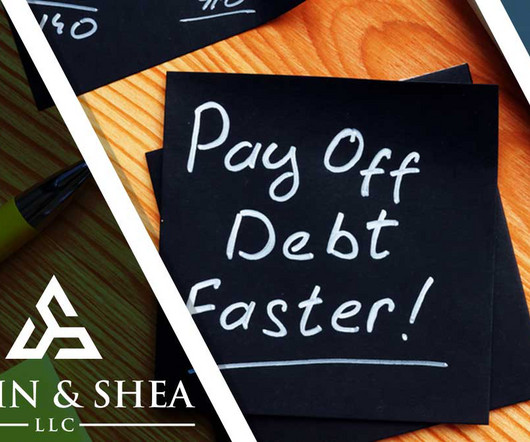Secured vs Unsecured Debt: Everything You Need to Know
Sawin & Shea
NOVEMBER 15, 2023
If a debtor has assets that are not protected under those statutes, the trustee can liquidate those items and use the proceeds to pay creditors back something. Chapter 13 involves commitment from the declarer to repay a portion of their debt over a specified period (usually three to five years). Unsecured Debt What is unsecured debt?















Let's personalize your content